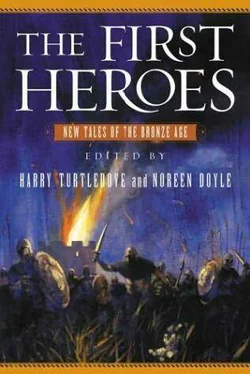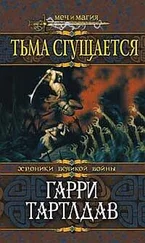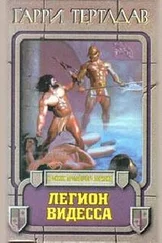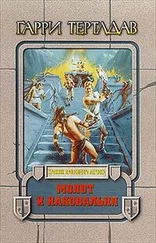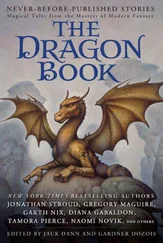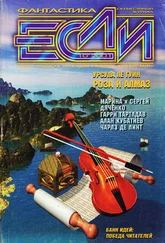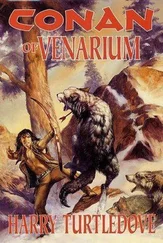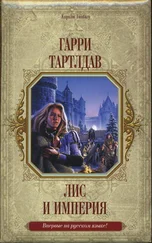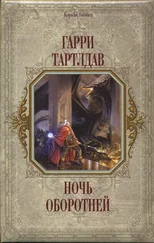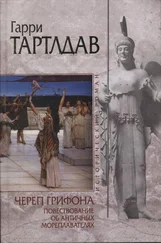Гарри Тертлдав - The First Heroes
Здесь есть возможность читать онлайн «Гарри Тертлдав - The First Heroes» весь текст электронной книги совершенно бесплатно (целиком полную версию без сокращений). В некоторых случаях можно слушать аудио, скачать через торрент в формате fb2 и присутствует краткое содержание. Жанр: Фантастика и фэнтези, на английском языке. Описание произведения, (предисловие) а так же отзывы посетителей доступны на портале библиотеки ЛибКат.
- Название:The First Heroes
- Автор:
- Жанр:
- Год:неизвестен
- ISBN:нет данных
- Рейтинг книги:3 / 5. Голосов: 1
-
Избранное:Добавить в избранное
- Отзывы:
-
Ваша оценка:
- 60
- 1
- 2
- 3
- 4
- 5
The First Heroes: краткое содержание, описание и аннотация
Предлагаем к чтению аннотацию, описание, краткое содержание или предисловие (зависит от того, что написал сам автор книги «The First Heroes»). Если вы не нашли необходимую информацию о книге — напишите в комментариях, мы постараемся отыскать её.
The First Heroes — читать онлайн бесплатно полную книгу (весь текст) целиком
Ниже представлен текст книги, разбитый по страницам. Система сохранения места последней прочитанной страницы, позволяет с удобством читать онлайн бесплатно книгу «The First Heroes», без необходимости каждый раз заново искать на чём Вы остановились. Поставьте закладку, и сможете в любой момент перейти на страницу, на которой закончили чтение.
Интервал:
Закладка:
Oreus frowned at that. "And if the gods are unkind?"
With a shrug, I answered, "If the gods are unkind, we won't come back ourselves. It's a long way to the Tin Isle, with many strange folk between hither and yon." That only made Oreus snort and throw up his tail like a banner. He has his faults, does Oreus, and no one knows them better than I—certainly not he, for lack of self-knowledge is conspicuous among them—but only a fool would call him craven. I went on, "And whatever has befallen the folk who grub the tin from the ground may meet us, too." His hands folded into fists. He made as if to rear, to stamp something into submission with his forehooves. But there was nothing he could smite. He scowled. He wanted to smash frustration, as he wants to smash everything. Another fault, without a doubt, but a brave fault, let it be said. "Anything that tries to befall me will rue the day," he declared. Idiocy and arrogance, you are thinking. No doubt. Yet somehow idiocy and arrogance of a sort that cheered me.
And so we built a ship, something centaurs seldom undertake. The Chalcippus, we named her—the Horse of Bronze. She was a big, sturdy craft, for centaurs are a big, sturdy folk. We need more space to hold enough rowers to drive a ship at a respectable turn of speed. Sphinxes, now, can pack themselves more tightly than we would dream of doing.
But the valley in which the sphinxes dwell has no timber worth the name. They build their ships from bundled sheaves of papyrus plants. These strange vessels serve them well enough on their tame river, less so when they venture out onto the open waters of the Inner Sea.
We have fine timber in our country. The hills are green with pine and oak. We would have to cut and burn for years on end to despoil them of their trees. I do not like to think the dryads would ever thus be robbed of their homes. Not while the world remains as it is, I daresay, shall they be.
Once the wood was cut into boards and seasoned, we built the hull, joining planks edge to edge with mortise and tenon work and adding a skeleton of ribs at the end of the job for the sake of stiffening against the insults of wave and wind. We painted bright eyes, laughing eyes, at the bow that the ship might see her way through any danger, and the shes wove her a sail of linen they dyed a saffron the color of the sun.
Finding a crew was not the difficult matter I had feared it might be. Rather, my trouble was picking and choosing from among the swarm of hes who sought to sail in search of the Tin Isle. Had I not named Oreus among their number, I am sure he would have come after me with all the wild strength in him. Thus are feuds born. But choose him I did, and Hylaeus, and Nessus, and enough others to row the Chalcippus and to fight her: for I felt we would need to fight her before all was said and done.
Sail west to the mouth of the Inner Sea, then north along the coast of the strange lands fronting Ocean the Great—thus in reverse, it was said, the tin came down from the far northwest. What folk dwelt along much of the way, what dangers we would meet—well, why did we make the voyage, if not to learn such things?
Not long before we set out, Oreus sidled up to me. In a low voice, he said, "What do you think, Cheiron? On our travels, do you suppose we'll find—wine?" He whispered the last word.
Even if he had spoken more softly still, it would have been too loud. Wine is . . . Wine is the most wonderful poison in all the world, as any of us who have tasted it will attest. It is a madness, a fire, a delight beyond compare. I know nothing hes or shes would not do to possess it, and I know nothing they might not do after possessing it. As well we have never learned the secret of making the marvelous, deadly stuff for ourselves. Gods only know what might become of us if we could poison ourselves whenever and however we chose.
I said, "I know not. I do not want to find out. And I tell you this, Oreus: if you seek to sail on the Horse of Bronze for the sake of wine and not for the sake of tin, sail you shall not." A flush climbed from where his torso rose above his forelegs all the way to the top of his head. "Not I, Cheiron. I swear it. Not I," he said. "But a he cannot keep from wondering . . ."
"Well, may we all keep wondering through the whole of the voyage," I said. "I have known the madness of wine, known it and wish I had not. What we do when we have tasted of it—some I do not remember, and some I wish I did not remember. Past that, I will say no more."
"Neither will I, then," Oreus promised. But he did not promise to forget. I wish I could have forced such a vow from him, but the only thing worse than a promise broken is a promise made or forced that is certain to be broken.
We set out on a fine spring day, the sun shining down brightly from the sky. A wind off the hills filled my nostrils with the spicy fragrance of pines. It also filled the saffron sail that pulled the Horse of Bronze across the wine-dark sea (an omen I should have taken, but I did not, I did not) fast enough to cut a creamy wake in the water.
The Inner Sea was calm. In spring and summer, the Inner Sea usually is. The Chalcippus's motion was as smooth and gentle as an easy trot across a meadow. This notwithstanding, several strong hes leaned over the rail and puked up their guts all the way to the horse in them. Some simply cannot take the sea, do what they will.
I am not one who suffers so. I stood at the stern, one hand on each steering oar. Another he called the stroke. He set the speed at my direction, but I did not have to do it myself. I was captain aboard the Chalcippus, yes, but among us he who leads must have a light hand, or those he presumes to lead will follow no more. Not all hes see this clearly, which is one reason we have been known—oh, yes, we have been known—to fight among ourselves.
But all was well when we first set out. The wind blew strongly, and from a favorable direction.
We did not have to row long or row hard. But I wanted the hes to get some notion of what they would need to do later, if the wind faltered or if we fell in with enemies. They still reckoned rowing a sport and not a drudgery, and so they worked with a will. I knew that was liable to change as readily as the wind, but I made the most of it while it lasted.
Some of the hes muttered when we passed out of sight of land. "Are you foals again?" I called to them. "Do you think you will fall off the edge of the earth here in the middle of the Inner Sea?
Wait till we are come to Ocean the Great. Then you will find something worth worrying about."
They went on muttering, but now they muttered at me. That I did not mind. I feared no mutiny, not yet. When I set my will against theirs in any serious way, then I would see. A captain who does not know when to let the crew grumble deserves all the trouble he finds, and he will find plenty.
Oreus came up to me when new land heaved itself up over the western horizon. "Is it true what they say about the folk of these foreign parts?" he asked. He was young, as I have said; the failed attack against the sphinxes had been his first time away from the homeland.
"They say all manner of things about the folk of foreign parts," I answered. "Some of them are true, some nothing but lies. The same happens when other folk speak of us." He gestured impatiently. "You know what I mean. Is it true the folk hereabouts"—he pointed to the land ahead—"are cripples? Missing half their hindquarters?" "The fauns? Cripples?" I laughed. "By the gods who made them, no! They are as they are supposed to be, and they'll run the legs off you if you give them half a chance. They're made like satyrs. They're half brute, even more so than satyrs, but that's how they work: torso and thinking head above, horse below."
"But only the back part of a horse?" he persisted. When I nodded, he gave back a shudder. "That's disgusting. I can stand it on goaty satyrs, because they're sort of like us only not really. But these faun things— it's like whoever made them couldn't wait to finish the job properly."
Читать дальшеИнтервал:
Закладка:
Похожие книги на «The First Heroes»
Представляем Вашему вниманию похожие книги на «The First Heroes» списком для выбора. Мы отобрали схожую по названию и смыслу литературу в надежде предоставить читателям больше вариантов отыскать новые, интересные, ещё непрочитанные произведения.
Обсуждение, отзывы о книге «The First Heroes» и просто собственные мнения читателей. Оставьте ваши комментарии, напишите, что Вы думаете о произведении, его смысле или главных героях. Укажите что конкретно понравилось, а что нет, и почему Вы так считаете.
